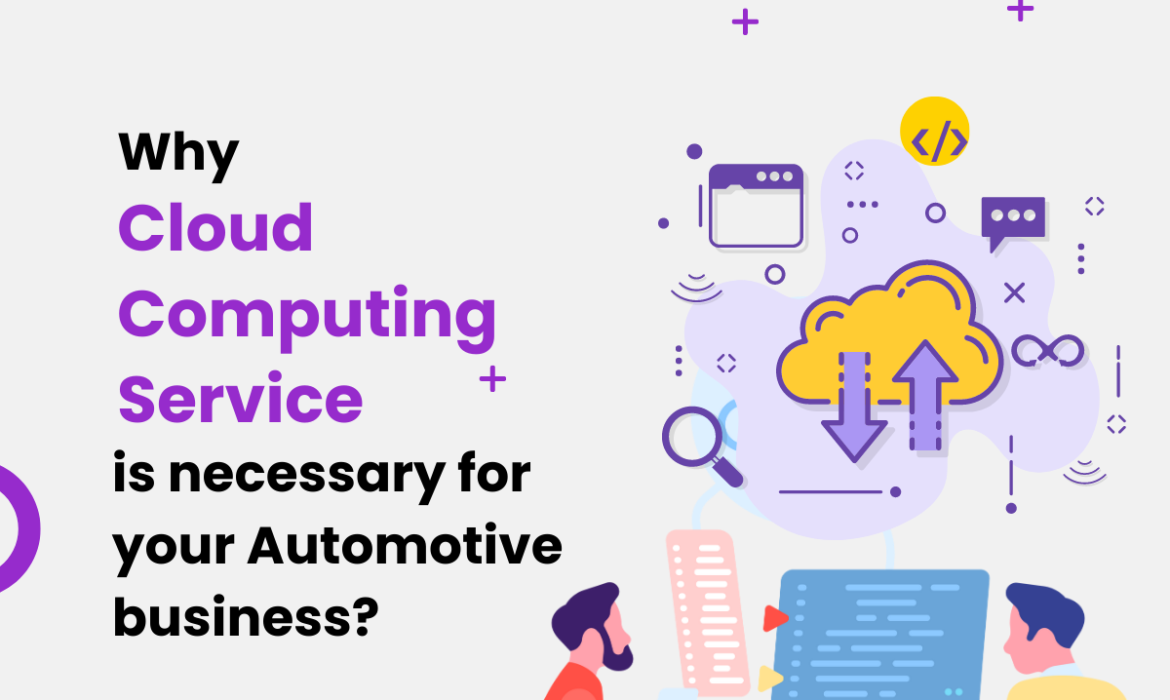
Cloud Computing's Critical Role in Advancing the Automotive Industry by Visualizing Cyber Solutions
Introduction:
In an era where technological advancements are propelling various industries forward, the automotive sector is no exception. The convergence of cloud computing and the automotive business has led to a transformative shift in how vehicles are manufactured, operated, and maintained. In this blog, we’ll delve into the reasons why cloud computing is not just beneficial but absolutely necessary for the automotive business to thrive in today’s fast-paced and interconnected world.
- Data-Driven Insights:
In the automotive industry, data is the new oil. Cloud computing enables the seamless collection, storage, and analysis of massive amounts of data generated by vehicles. This data, including performance metrics, user preferences, and driving patterns, can be harnessed to gain valuable insights. Manufacturers can use these insights to optimize vehicle design, improve safety features, and enhance overall performance.
2.Connected Vehicles:
Cloud computing forms the backbone of connected vehicles. Through the cloud, vehicles can communicate with each other, infrastructure, and external services. This connectivity enables real-time updates on traffic, weather, and road conditions, enhancing driver safety and navigation. Moreover, over-the-air (OTA) software updates can be delivered via the cloud, ensuring vehicles stay up-to-date with the latest features and security patches.
3.Predictive Maintenance:
Cloud-based systems facilitate predictive maintenance by continuously monitoring vehicle components and performance. This proactive approach allows manufacturers and fleet operators to detect potential issues before they escalate, reducing downtime and maintenance costs. By analyzing historical data and patterns, cloud-based systems can predict when specific parts might fail and schedule maintenance accordingly.
4.Supply Chain Optimization:
Cloud computing streamlines the automotive supply chain by enabling real-time communication and collaboration among manufacturers, suppliers, and distributors. This leads to efficient inventory management, reduced lead times, and optimized production schedules. With cloud-based analytics, supply chain partners can make informed decisions based on demand forecasts and market trends.
5.Enhanced Customer Experience:
Cloud-based platforms enable automakers to offer personalized services to customers. Features such as in-car entertainment, navigation, and infotainment systems can be customized based on user preferences and behavior. Additionally, cloud-connected vehicles can provide remote diagnostics and support, enhancing the overall ownership experience.
6.Autonomous Driving Development:
The development of autonomous vehicles heavily relies on cloud computing. The vast amount of data required for training machine learning algorithms and simulating various driving scenarios can be stored and processed in the cloud. This accelerates the development and testing of self-driving technology, bringing us closer to a future with safer and more efficient autonomous vehicles.
Conclusion:
In a world where innovation is key to success, cloud computing has become an indispensable tool for the automotive industry. From connected vehicles to data-driven insights, cloud technology is propelling the sector into the future. Embracing cloud computing not only enhances operational efficiency but also leads to safer, more connected, and technologically advanced vehicles that cater to the evolving needs of consumers.
As the automotive business continues to evolve, the cloud will undoubtedly remain a driving force, steering the industry towards unprecedented levels of innovation and growth.
#CloudDrivenAutomotive #AutomotiveInnovation #TechRevolution #DrivingTheFuture #VisualizeCyberSolution #LifeatVCS



